News
Police get IGP nod to fight back if attacked

The Inspector General of Police, Mohammed Adamu, has told the police to protect themselves when attacked.
The order came on Friday against the backdrop of the killing of 22 policemen and burning of 205 police stations and other security formations during the EndSARS riots across the country.
He stated this during a visit to the police command of the Federal Capital Territory, Abuja, to assess the level of damage during the EndSARS protest.
He commended officers and men of the force for their resilience and professionalism during the protest.
The IGP said the Federal Government was relying on the police to ensure that the public space was not taken over by criminals.
He said, “No amount of provocation and insult will make us shy away from our responsibilities. Inasmuch as we are aware that the government is behind us, we will encourage you to continue to be professional and civic in performing your duties.
“But if anybody touches or assaults you, you can also protect yourself because when we talk of human right, the police are human; so the rights of police officers should also be protected. We are sending the message that legally, we have the right to protect ourselves,” he said.
He said the visit was to commiserate with the officers and men of the command for the loss of lives and property during the protests.
“I have seen how you went out to deal with very difficult situation in trying to maintain peace, law and order in the FCT during the protest,” he said.
The IGP said that during the protest, some roads were blocked; some vehicles were burnt and police stations in some parts of the country, including the FCT, were burnt with police officers assaulted. Adamu said the destruction and other criminal activities was done because the protesters were waiting for the police to react.
He said, “I know how you went about protecting the protesters so that they would not be molested, but along the line, the protesters attacked not only members of the public but also police officers.
“These are criminal activities by the protesters wanting to provoke police personnel to use maximum force against them to justify police brutality.
“But with your resilience and professionalism, you were able to show maximum restrain and meet up with the standard that is required in curbing protest without using force.”
The Commissioner of Police at the FCT, Mr Bala Ciroma, commended the IGP for the visit, adding that the command arrested and had arraigned 196 suspects in connection with the riot.
The IGP said 22 police personnel were killed and scores of others injured during the EndSARS protests in different locations across the country. The police chief stated this on the heels of a report by Amnesty International that police personnel shot at peaceful protesters during the rallies.
Adamu, in a statement by the Force Public Relations Officer, Mr Frank Mba, said that 205 police stations and formations, including other critical private and public infrastructure, were also damaged by a section of the protesters.
The IGP, who faulted the Amnesty International’s report, claimed that many of the personnel injured during the protests were in life-threatening conditions in hospitals.
He described the report as untrue, misleading and contrary to all available empirical evidence.
The statement reads in part: “Officers of the Nigeria Police Force acted professionally, exercised commendable restraints and some paid the supreme price for peace during the recent protests and ensuing violence in some parts of the country. “During the protests, officers of the Force used legitimate means to ensure that the protests were carried out in a peaceful manner and in most cases, physically protected and walked side-by-side with the protesters.
“Even when the protests turned violent in some parts of the country, the officers still maintained utmost restraint and did not use excessive force in managing the situations.
“Available reports show that twenty-two (22) police personnel were extra-judicially killed by some rampaging protesters and scores injured during the protests. Many of the injured personnel are in life-threatening conditions at the hospitals.
“Two hundred and five (205) police stations and formations, including other critical private and public infrastructure, were also damaged by a section of the protesters. Despite these unprovoked attacks, our police officers never resorted to use of unlawful force or shooting at the protesters as alleged in the report.”
News
INEC uncovers plan to disrupt Edo elections using ESSN operatives
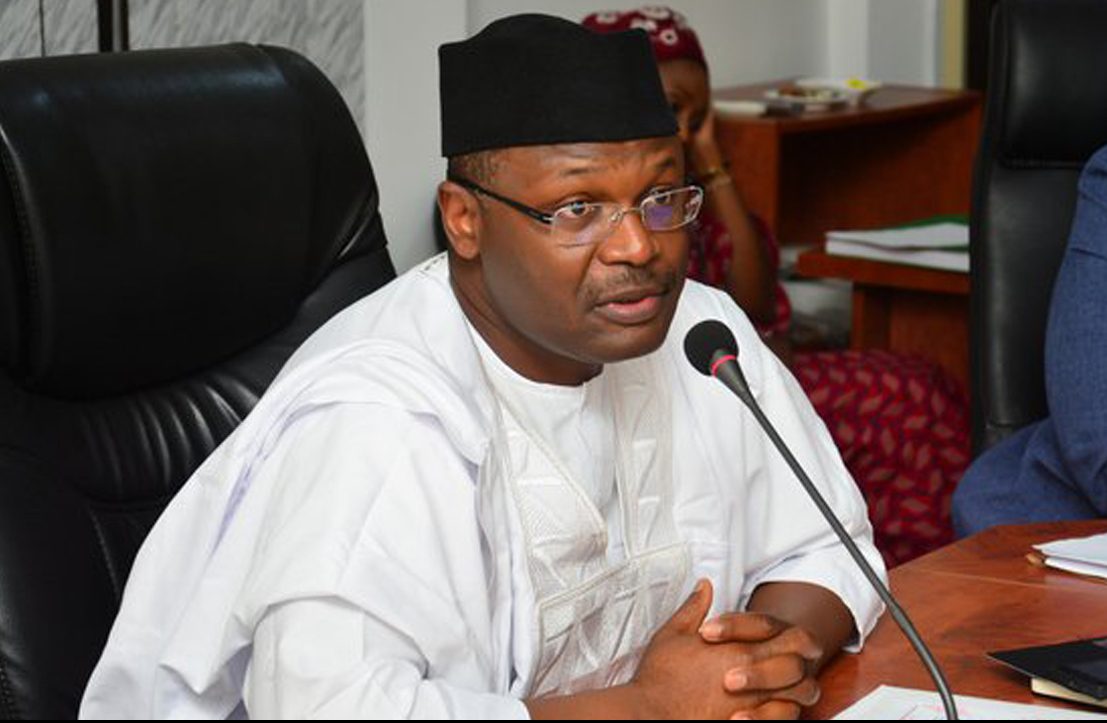
INEC uncovers plan to disrupt Edo elections using ESSN operatives
Chairman of the Independent National Electoral Commission (INEC), Prof. Mahmood Yakubu, has revealed plans to use members of the Edo State Security Network (ESSN) to disrupt the September 21 governorship elections.
He stated this on Thursday during his appearance before the National Assembly’s Joint Committee on Electoral Matters.
Prof. Yakubu also expressed worries about the security of lives and property during the upcoming off-cycle elections in Edo and Ondo states.
He noted not only the strain on state resources but also the issue of incumbency being exploited by governors to the disadvantage of opposition parties and their candidates.
Speaking specifically on Edo elections Prof. Yakubu said despite the challenge of flooding, there is also the issue of security.
READ ALSO:
- Muslims condemn Nancy Isime movie over use of hijab
- Again, Tinubu says govt won’t tolerate destructive protests
- NERDC Executive Secretary Prof Ismail Junaidu slumps, dies
He alleged that there was available information on the alleged deployment of operatives of the Edo State Security Network ESSN to curse commotion during the September 21 polls.
While outlining the activities for the two elections, the INEC boss said submission of all polling agents will be done 30 days before the respective elections.
He also said 17 candidates would be contesting the governorship position in both states with Edo fielding the only female candidate in the entire polls.
INEC uncovers plan to disrupt Edo elections using ESSN operatives
News
Again, Tinubu says govt won’t tolerate destructive protests

Again, Tinubu says govt won’t tolerate destructive protests
President Bola Tinubu emphasized the importance of balancing democratic freedoms with public safety on Thursday.
While acknowledging the right to peaceful protest, he made it clear that his administration will not permit demonstrations that escalate into violence, destruction, or harm to individuals or property.
This statement was made during a ceremony at the Presidential Villa in Abuja, where he received credentials from the newly appointed US Ambassador, Richard Mills Jr.
The President’s media adviser, Ajuri Ngelale, shared this exchange in a statement that underscored Tinubu’s commitment to preserving democratic norms and institutions.
Tinubu said this on the backdrop of growing calls for nationwide protests against economic hardship, scheduled for August 1, 2024.
The President said, “During the military era, we made our voices heard against dictatorship, and I was part of the group that engaged in peaceful protests without resorting to the destruction of property.
“We have worked hard to ensure 25 years of unbroken democracy and I will continue to maintain this democracy.”
He also described Nigeria-US relations as “rich,” committing to uphold democracy.
“Our relationship with America is rich. We believe in democracy and freedom. Some of your predecessors worked hard during our transition to democracy, and we remember the likes of Ambassador Howard Jeter.
READ ALSO:
- NERDC Executive Secretary Prof Ismail Junaidu slumps, dies
- MURIC demands ban on movie portraying women in Niqab as criminals
- BREAKING: Ohanaeze President General, Iwuanyanwu, dies at 82
“We look forward to Nigeria and the United States continuously working to expand cooperation on shared goals and democratic values,” he said.
Tinubu welcomed the U.S. State Department’s acknowledgement of Nigeria’s strategic role on the continent as Africa’s largest democracy, calling on the U.S. government to pay more attention to Africa.
He said, “Nigeria is ready to play its role as the largest democracy in Africa that is worthy of emulation to other African countries, but we need more U.S. partnership on the continent that is beneficial to both sides.
“We believe in freedom, and we are providing the leadership to make Nigeria’s economy grow.”
On his part, Mills affirmed the U.S. support for Nigeria’s democracy and pledged support for bigger roles for Nigeria in the international arena.
“Nigeria is crucial to the United States because we share democratic values, and we are ready to give you all the support.
“I am here to make sure that the relationship blossoms both on democracy and the economic side,” Mills said.
The Ambassador also expressed the United States’ commitment to expanding cooperation with Nigeria on cybercrimes, announcing the establishment of a special office at the Embassy to work closely with the Economic and Financial Crimes Commission.
Earlier, President Tinubu also received Letters of Credence from the High Commissioner of Malaysia to Nigeria, Aiyub Bin Omar, and the High Commissioner of Botswana, Ms. Phild Nani Kereng.
He told the High Commissioner of Malaysia that Nigeria would work towards improving the balance of trade between the two countries.
“Diversification of the economy is uppermost on my Renewed Hope Agenda for Nigeria.
“We must look at how we can improve the balance of trade with Malaysia,” the President said.
Tinubu also acknowledged that many Nigerian students find studying in Malaysia attractive, adding that Nigeria looks forward to their contributions to the development of critical sectors of the economy, such as agriculture and ICT.
The Malaysian High Commissioner said that ahead of the 50th anniversary of the establishment of bilateral relations in 2025, Malaysia is looking forward to strengthening relations with Nigeria.
READ ALSO:
- Customs impound seven containers of hard drugs in Rivers
- 30-year-old fake soldier arrested in Bauchi
- Wike dares protest organisers, says August 1 not available in Abuja
“We are pleased with our cooperation in the areas of education. We are also keen on working with Nigerian partners in the financial services sector,” the High Commissioner said.
In his audience with the Botswana High Commissioner, the President expressed Nigeria’s readiness to develop robust cultural and economic cooperation with the Southern African country.
Acknowledging Botswana’s progress on livestock development, the President said he had received a briefing from a committee established to create a ministry of livestock development in Nigeria.
“The committee is at work, and their report will be ready in the next two weeks. Africa’s solution is in our hands. Nobody will help us if we do not help ourselves,” Tinubu said.
He described President Mokgweetsi Masisi of Botswana as a good friend and extended his appreciation to the Botswana President for attending his inauguration.
Kereng said Botswana is committed to being a leader in the production of livestock vaccines and is prepared to partner with Nigeria in this area.
She expressed admiration for Nigerian arts, entertainment, and culture, adding that young people from Botswana had a lot to learn from Nigeria’s youth-driven creative economy.
“My coming to Nigeria fulfils my President’s vision of improved relations with Nigeria, and I will work very hard to achieve these objectives,” said Kereng.
The protests, organised under the hashtag ‘#EndBadGovernancein Nigeria,’ have gained significant traction on social media, with no group officially claiming responsibility.
Again, Tinubu says govt won’t tolerate destructive protests
News
MURIC demands ban on movie portraying women in Niqab as criminals
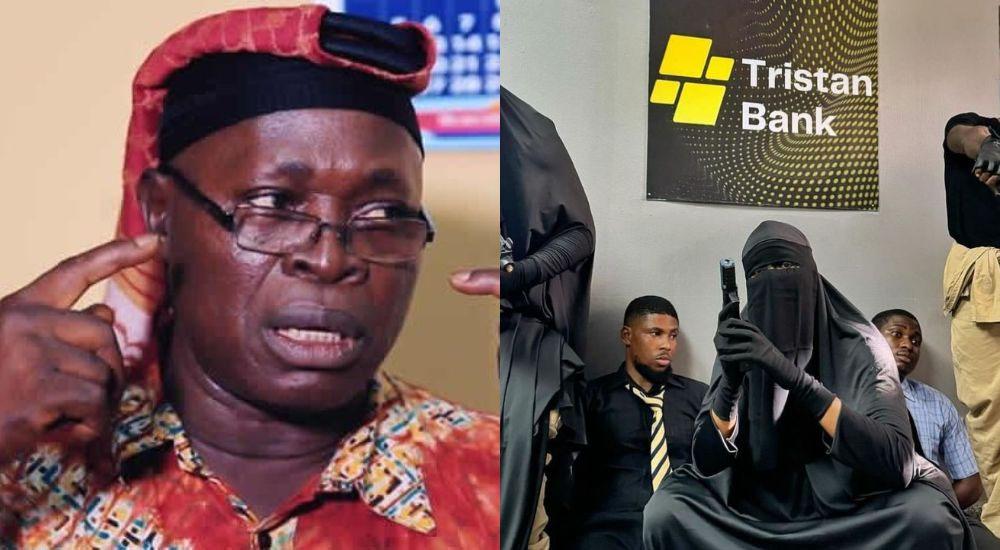
MURIC demands ban on movie portraying women in Niqab as criminals
The Muslim Rights Concern (MURIC) has condemned an upcoming movie featuring Nancy Isime and other actresses wearing purdah (Niqab) and brandishing weapons, describing it as “satanic” and “Islamophobic.”
The group claims the film portrays Muslim women as criminals and incites the public against them.
The statement read: “An extremely anti-Muslim film has been released into the Nigerian movie industry. The upcoming film, which was recently unveiled by Nancy Isime, shows women in purdah brandishing dangerous weapons and robbing banks. It is Islamophobia taken to the highest level. This film is satanic, repugnant, and provocative.
“It is aimed at portraying Muslim women as criminals with a violent proclivity. The film is capable of inciting the public against Muslim women. It may also expose Muslims in general to public ridicule and opprobrium.
“We believe that the film is the handiwork of Muslim-haters and part of the plot to stop Muslim women from wearing hijab and niqab. The plot was hatched a long time ago, and its execution began in the schools. This plot was boldly and diligently confronted in Nigerian courts by Muslims until the highest court in the land made a pronouncement on it. This Satanic film is the latest effort in the war against hijab”.
MURIC’s Executive Director, Professor Ishaq Akintola, called for the National Film and Video Censors Board to investigate and ban the movie, warning that it could spark violence and ridicule against Muslims.
“To Nigerian Muslims who have inundated our communication channels with video clips, voice notes, and other types of messages, we have this to say: please remain calm and peaceful. You have spoken loud and clear.
READ ALSO:
- BREAKING: Ohanaeze President General, Iwuanyanwu, dies at 82
- Customs impound seven containers of hard drugs in Rivers
- 30-year-old fake soldier arrested in Bauchi
“We have received your messages and action is being taken right now. Our religion brought a message of hope and peace to the world. We will not allow anyone to paint our women, our mothers, our wives, our daughters and sisters in the colours of Shaytan. Be good ambassadors of Islam. Don’t take the law into your hands. Allow the authorities to take necessary action,” he added.
The movie poster sparked outrage among the Muslim community, with many expressing offense at the depiction of women wearing hijab and face veils in a bank robbery scene.
Some have threatened to file a complaint with Meta, seeking action against the account responsible for sharing the “Islamophobic content.”
Reacting, one Latifat Adewunmi Jumah, with a Facebook handle, Laj Fingers, expressed her dissatisfaction over the offensive posts, saying, “The niqab/hijab is not an armed robbery attire! The niqab/hijab is not an attire for concealing identity. If you needed to conceal your identity for a perfect robbery role, you could have used a nose mask or wear a mask. Why wear Islamic attire? I find this offensive. Something needs to be done to stop these people. Niqab/Hijab is not a costume, neither is it a joke”.
Another Facebook user, who identified as Alfa Shehu, commented, “And one of our brothers from Ilorin is kuku in the movie with them. Hypocrites! It is these same people who will turn around tomorrow and say women in Niqab are doing this and doing that. Awon alarun opolo gbogbo. Anything for clouts and monetisation.”
MURIC demands ban on movie portraying women in Niqab as criminals
-
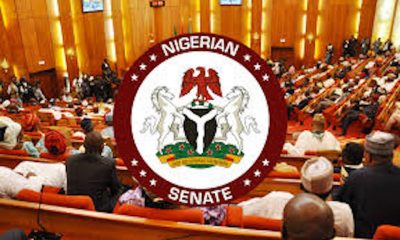
 News3 days ago
News3 days agoBREAKING: Senate passes minimum wage bill within an hour
-

 Business3 days ago
Business3 days agoDangote refinery Vs NMDPRA: Petroleum Minister Lokpobiri intervenes, meets Aliko, Ahmed, NNPCL head
-
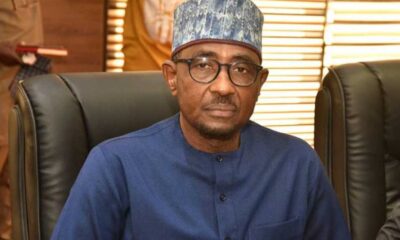
 News2 days ago
News2 days agoJUST IN: Reps call for suspension of NMDPRA CEO pending investigation
-

 News2 days ago
News2 days agoNLC can’t withdraw from protest it didn’t organise – Ajaero
-

 News3 days ago
News3 days agoBREAKING: Tinubu Sends ₦70,000 Minimum Wage Bill To National Assembly
-

 News2 days ago
News2 days agoNorthern group attacks Reps Minority Caucus for demanding Nnamdi Kanu release
-

 News3 days ago
News3 days agoWhy some people in NNPC are sabotaging Dangote refinery – Emir Sanusi
-

 International3 days ago
International3 days agoDozens killed as Palestinians flee Israel’s new offensive on Khan Younis











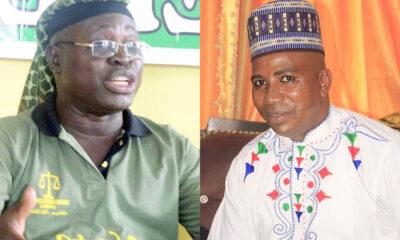


You must be logged in to post a comment Login